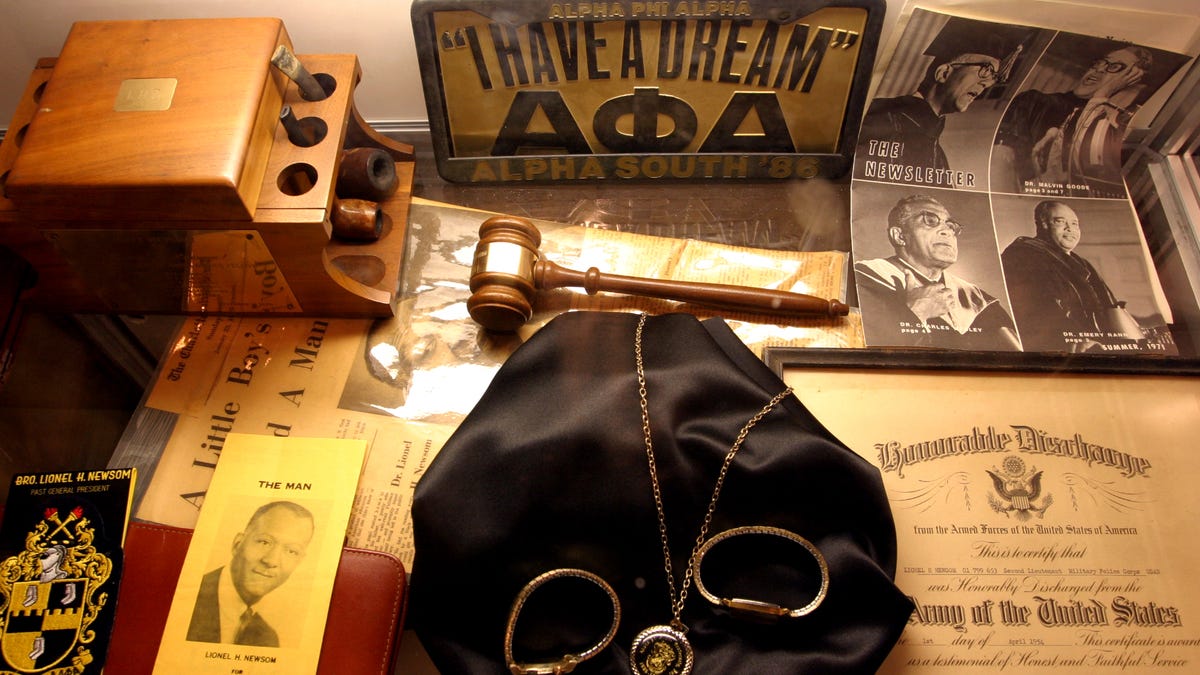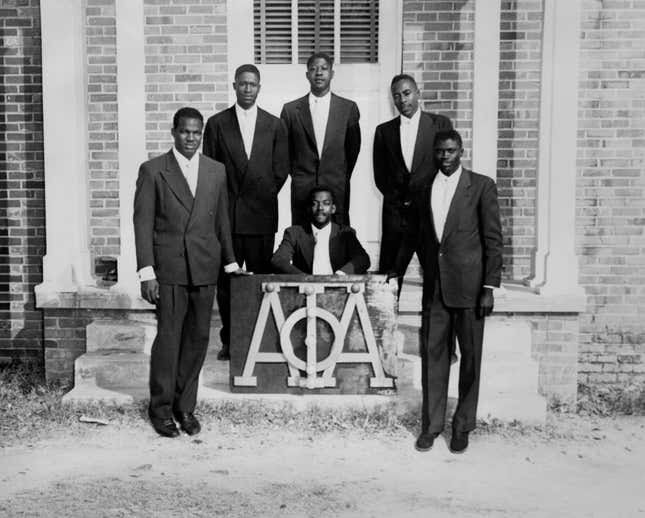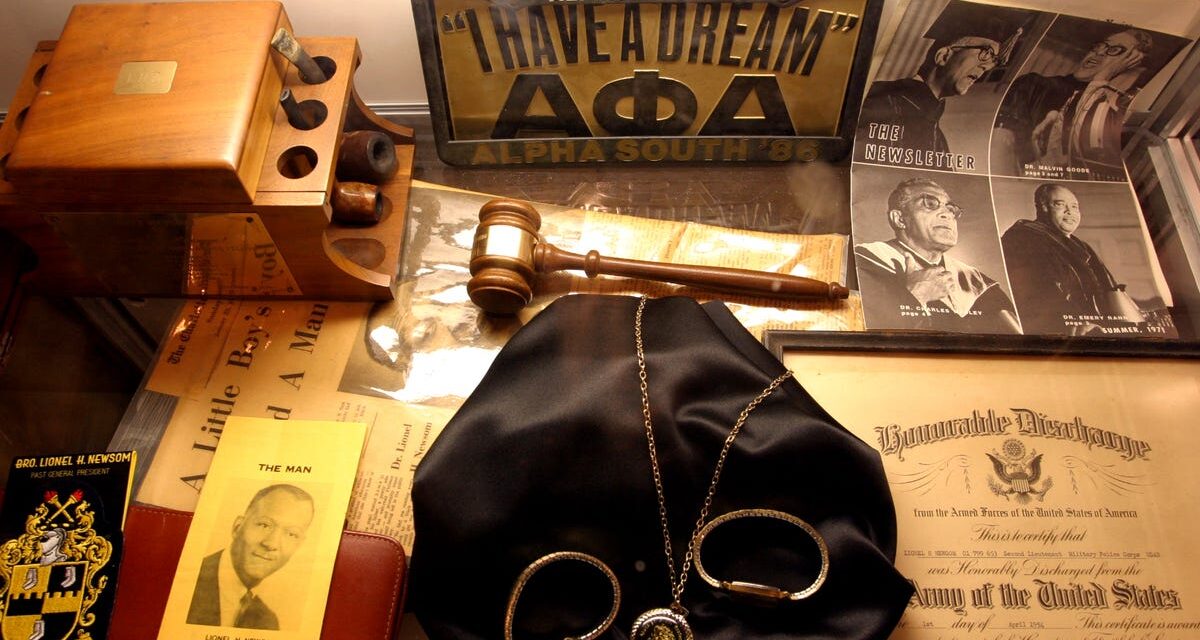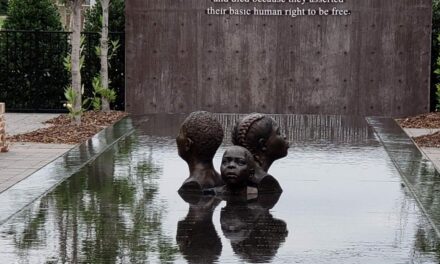
Almost 100 years after its founding, Alpha Phi Alpha Fraternity, Inc. (Alpha), is proposing an amendment that many say sets a dangerous precedent for the country’s first historically Black fraternity.
Don Lemon Talks Politics and Polls with The Root
During this month’s constitutional convention for the Divine Nine (D9) Greek organization, which started July 10, Alpha delegates considered changing its constitution to restrict membership to “any male-defined as a human being naturally born male, who remains and continually identifies as a male,” GLAAD reported.
If the proposal advances, Alpha would become the second Black fraternity to institute a trans ban, following Phi Beta Sigma Fraternity Inc. (Sigma) in 2017.
Just days after the motion was reported, the National Black Justice Coalition (NBJC), a leading civil rights and LGBTQ+ empowerment organization, released a statement condemning Alpha’s actions.
“By seeking to exclude transgender people, these fraternities are turning their backs on the very principles of brotherhood and inclusivity that they were founded upon and are a betrayal of the legacy of activism and leadership that these organizations have upheld for over a century,” said NBJC CEO David Johns, according to The Hill.
Though the motion has not been ratified, Johns is one of several Black community members speaking out against the ban along with many active D9 members.
“It’s discriminatory, it’s transphobic, and it’s not in any way reflective of what I believe our founders created these organizations for,” said Jordynn Jenkins, a member of Alpha Kappa Alpha Sorority, Inc. (AKA).
According to the NAACP, Black fraternities and sororities were created in direct response to racism and discrimination during the early 1900s. Alpha was the first fraternity founded in 1906 followed by AKA in 1908.
Many like Jenkins are wondering exactly how this ban will affect past and current members of Alpha. “Are we now going back and rescinding membership to those individuals based solely on their gender identity?” she asked. “Even if they’ve been the embodiment of servitude and brotherhood?”
Although there isn’t much data on exactly how many of the active 2.5 million D9 members also identify as LGBTQ, many queer members are calling out Alpha for discriminating against trans members who have already paid their dues.

Portrait of male university students and Alpha Phi Alpha fraternity members at Claflin University in Orangeburg, South Carolina in the 1950s.Image: Cecil Williams (Getty Images)
Kadin Smith, a member of Sigma, said he’s disappointed by the trans ban, but he is not surprised. “A lot of our queer brothers and sisters are tolerated instead of celebrated in [these] organizations,” Smith told The Root.
Because the constitutional convention was a matter of “closed business,” no other Black Greek organization has publicly addressed the potential ban, and Smith said this behavior is right on brand for an organization that did not acknowledge Pride Month nationally.
“A lot of the work towards getting support and being those allies for the LGBTQ+ community really has fallen onto individual chapters and members in their own ways,” he said. Although his fraternity nationally banned trans men ten years before he joined, Smith said his chapter is supportive of him as a gay man.
“Black [Greek] organizations have the responsibility to reflect and represent all of our brothers and sisters, whether they’re trans; whether they’re straight; whether they’re cisgendered,” he continued.
Smith, like many D9 members, view the ban as a clear cut example of the generational divide between younger, more progressive members and the older power holders. Alpha member Alvin Jones said he’s hopeful, however, that these generations can come together to truly advance the fraternity.
“Whenever there’s any type of ban or any type of rule, people are going to resist that,” Jones told The Root. “And once they notice that people are resisting, it educates the individuals who even created them. Then it starts the whole conversation.”
Many in the LGBTQ+ community are scared for what this ban could mean for them, but Jones, who has been a member of Alpha since 2019, said the ban shouldn’t discourage potential members.
“At the end of the day, we’re going to make sure that whoever wants to join is able to still join,” he said. “I see them [Alpha] realizing how they need to be more open… and then, honestly, that’s how something beautiful can become— can be built out of it.”
There are still many steps before the proposal becomes official law. It must first make it to a general ballot before it will be voted on.
The Root has reached out to Alpha’s communications department but did not receive a response. Additionally, The Root contacted several other members of Alpha who declined to comment.




